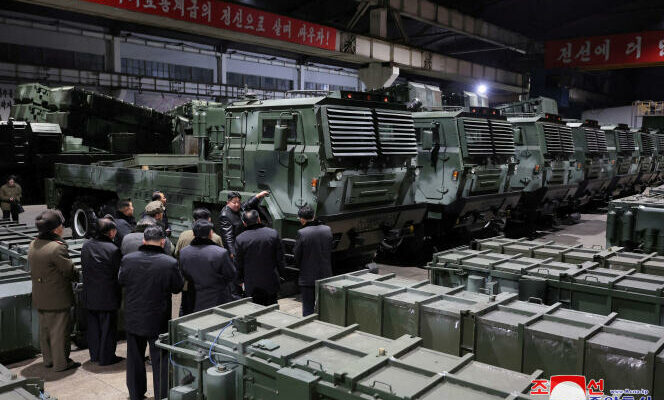The volleys of cannon fire with live ammunition fired by North Korea since the start of the year from its southwest coast, near the maritime demarcation line with South Korea in the Yellow Sea, are not only yet another provocation from Pyongyang. They illustrate the “decisive change” of North Korean policy towards the South, announced on December 30, 2023, by leader Kim Jong-un during a plenary assembly of the central committee of the Workers’ Party of Korea.
“North-South relations are no longer relations between compatriots, but are a hostile relationship between two states at war”, Kim Jong-un said. In itself, his words reflect a part of the truth: the two Koreas are two states still, theoretically, at war: hostilities were simply suspended by the armistice of 1953. THE “decisive change” mentioned by the leader nonetheless constitutes a turning point in relations between the two countries: it puts an end to the very conception of their division maintained by Pyongyang and Seoul for decades.
Since the North-South joint declaration of 1972, the two Koreas have in fact presented themselves less as two separate States than as partners with certainly antagonistic regimes, but working towards a reunification which could initially take place through a confederation (a country, two systems).
Washington “lackey”
North Korean propaganda outlets have now removed any reference to reconciliation with the South. The joint declaration of June 15, 2000, signed in Pyongyang by the leaders of the time, South Korean Kim Dae-jung and North Korean Kim Jong-il, has disappeared from the regime’s two propaganda websites, the Ryomyong and theUriminzokkiri. And, for several months, Pyongyang has been referring to South Korea by its official name of the Republic of Korea (Daehan Min-kuk), which was not the case before, notes Andreï Lankov, expert on North Korea, on the information site NK News.
For Pyongyang, South Korea is now treated as an enemy state and no longer as a special entity managed by separate administrations of the Ministry of Foreign Affairs: the United Front Department of the Workers’ Party and the Committee for the Reunification of the motherland.
For Kim Jong-un, it is for the prestige of the Democratic People’s Republic of Korea (DPRK) not to discuss with any country “lackey” of Washington. Another consequence of this new policy, “if the enemy opts for confrontation, we must be ready to annihilate him”, did he declare. In other words, argues Hong Min of the Korea Institute for National Unification in Seoul“if South Korea has become an enemy like any other, the use of nuclear weapons becomes possible even though they are compatriots”.
You have 55% of this article left to read. The rest is reserved for subscribers.
